Look, I’ll be honest – I used to think anime was just cartoons for kids. Boy, was I wrong. After years of getting completely absorbed in these stories (sometimes staying up way too late binge-watching), I’ve realized they tackle life’s biggest questions better than most ‘serious’ shows.
With over 800 million people worldwide watching anime and 36% of global viewers finding it more emotionally engaging than other media, we’re talking about something bigger than just entertainment. These aren’t just stories – they’re emotional experiences that stick with you long after the credits roll.
I’ve picked out 25 anime stories that don’t just entertain – they actually give you tools for dealing with real life. Whether you’re struggling with relationships, career stuff, or those 3 AM existential crises we all have, these stories offer perspectives that might just change how you see things.
What Makes an Anime Story Actually Life-Changing
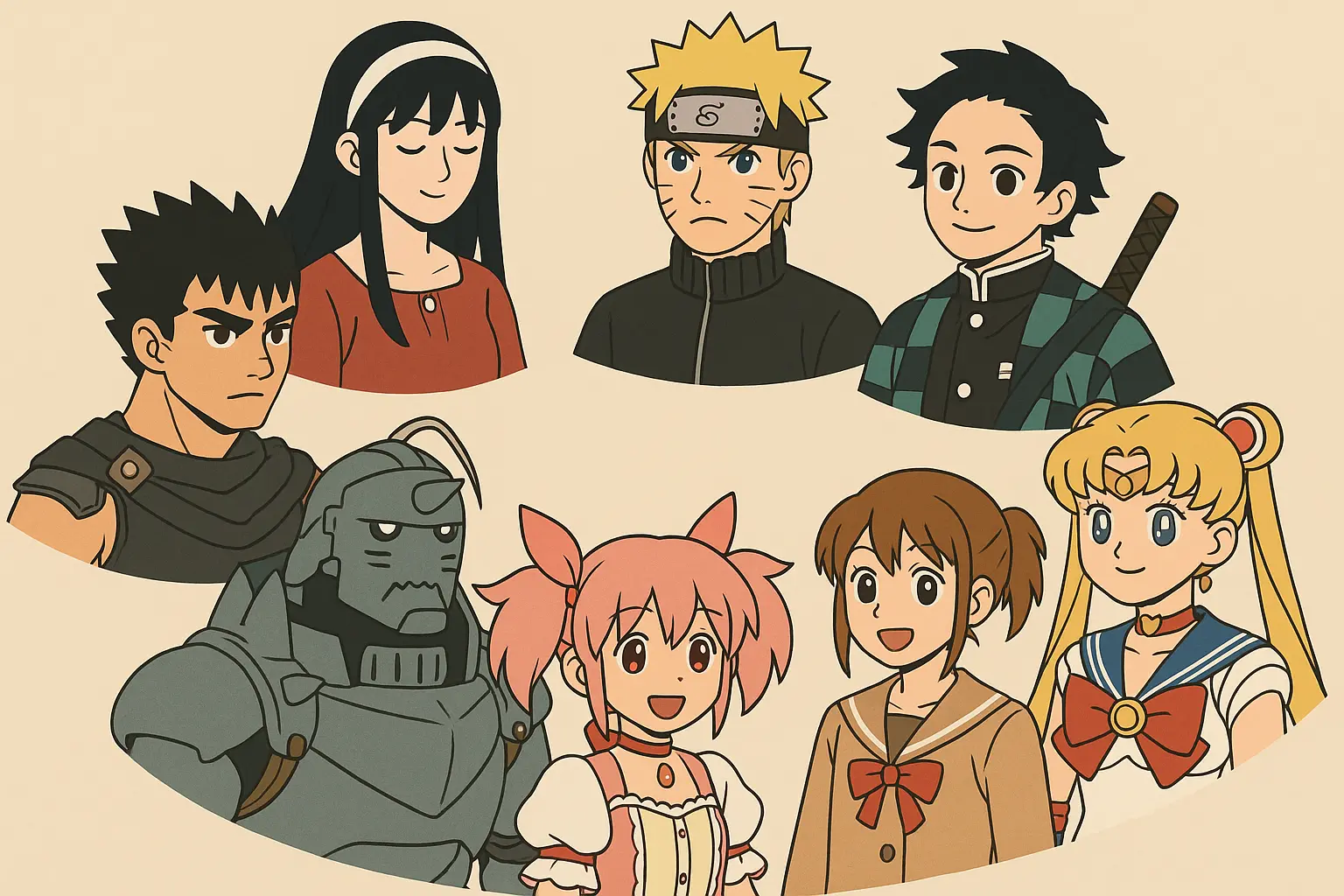
Okay, so what makes these stories stick with you? Honestly, it’s when characters feel like real people dealing with real problems – even if they’re fighting demons or time-traveling. When I can see myself in their struggles, that’s when the magic happens.
The best stories hook you from the start and don’t let go. I’m talking about those shows where you tell yourself “just one more episode” and suddenly it’s 4 AM and you have work in three hours. The pacing keeps you invested because the characters are growing and changing in ways that feel genuine.
Character development is where these stories really shine. When you watch someone struggle through the same kind of stuff you’re dealing with – even if they’re doing it while fighting giant monsters – something clicks. You start rooting for them because you’re basically rooting for yourself.
Production quality matters more than you’d think. I used to be that person who said “I don’t care about animation quality,” but good visuals and sound design actually make the emotional moments hit harder. When a character is having a breakdown and the music, voice acting, and animation all work together, you feel it in your chest.
The soundtrack thing is real too. I still get emotional hearing certain songs from these shows because they’re tied to moments that mattered. Music amplifies everything – the victories feel bigger, the losses cut deeper.
But here’s what really separates good shows from life-changing ones – they tackle the big stuff. Love, loss, identity, finding your place in the world – these themes hit different when they’re wrapped up in compelling stories. They give you new ways to think about problems you’re already facing, much like the 25 story theme examples that will transform your writing in minutes found in all great storytelling.
The best anime stories also don’t talk down to you. They handle complex themes without making everything super obvious or preachy. They trust you to get it, which makes the experience feel more personal and meaningful.
|
What Makes Stories Stick |
Why It Matters |
Shows That Nail It |
|---|---|---|
|
Characters Feel Real |
You see yourself in their struggles |
March Comes in Like a Lion, Violet Evergarden |
|
Emotional Honesty |
They don’t sugarcoat the hard stuff |
A Silent Voice, Grave of the Fireflies |
|
Universal Themes |
Problems everyone can relate to |
Your Name, Monster |
|
Quality Production |
Everything works together to hit you in the feels |
Studio Ghibli films, Demon Slayer |
|
Respect for Viewers |
Doesn’t explain everything like you’re five |
Steins;Gate, Attack on Titan |
Coming-of-Age Stories That Get It
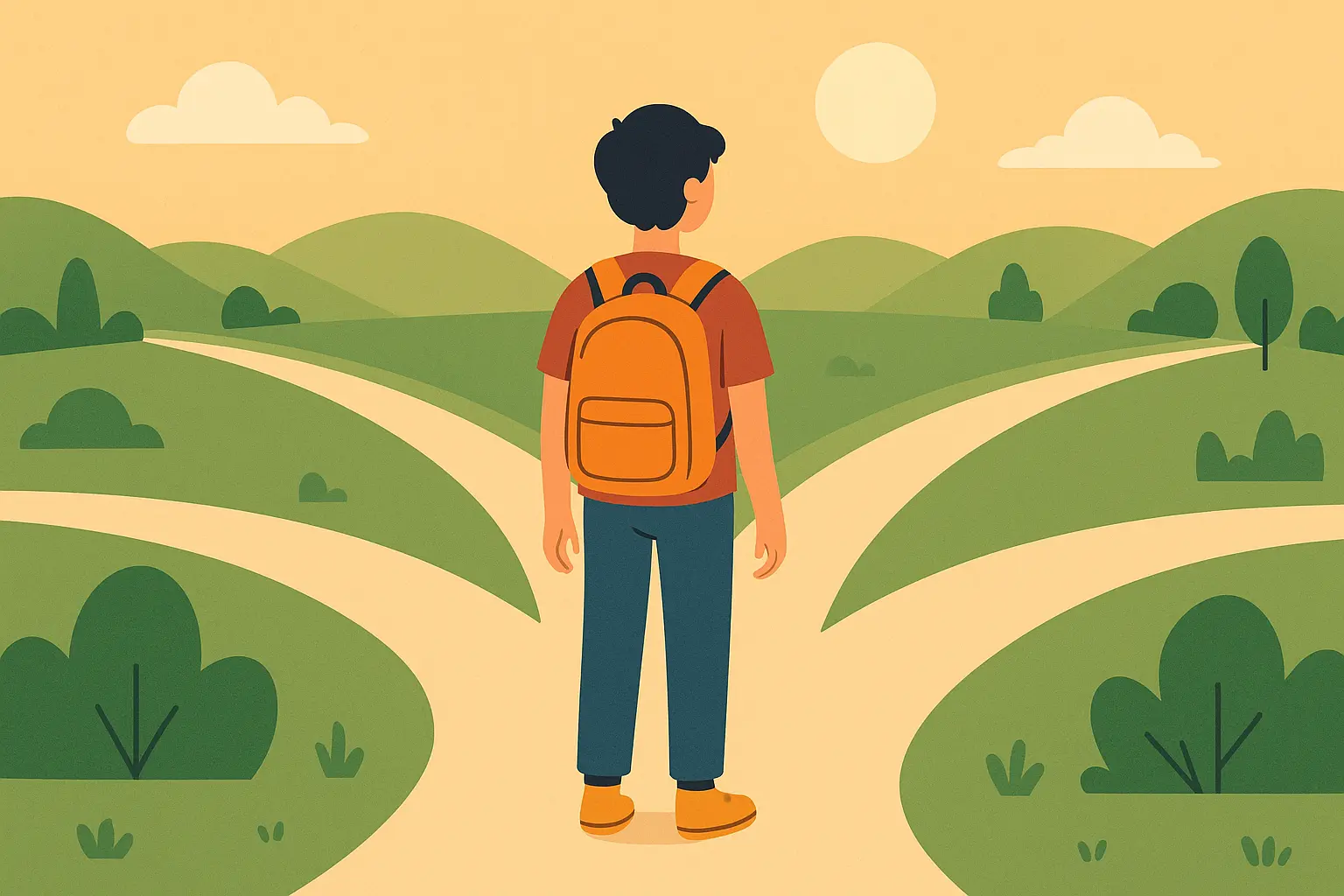
Remember being a teenager and feeling like everyone else had life figured out except you? These stories get that feeling perfectly – that weird space between being a kid and pretending to be an adult. Each one tackles different aspects of growing up, and honestly, they’re just as relevant if you’re 30 and still figuring things out.
1. Your Name (Kimi no Na wa) – Long-Distance Connections That Actually Matter
Okay, “Your Name” sounds bonkers – two kids swap bodies across time and space. But trust me, by the end you’ll be texting your long-distance friends just to check in. It’s really about how we stay connected to people who matter, even when life gets complicated.
This story gets how relationships work across distance. You learn that small, consistent efforts matter way more than grand gestures. The supernatural stuff is just window dressing for a very real truth about maintaining connections when you can’t be physically present.
I know someone who watched this right before moving across the country for college. She was terrified about leaving her high school friends behind, but the movie showed her that meaningful relationships survive distance when both people put in effort. She started a group chat tradition where everyone shared one random thing from their day. Three years later, they’re still going strong, proving that intentional communication really can bridge any gap.
2. A Silent Voice (Koe no Katachi) – Actually Making Things Right
This one’s about a former bully trying to make amends with the deaf girl he tormented in elementary school. It sounds heavy because it is, but it’s also incredibly hopeful about second chances and genuine change.
You learn what real apologies look like and how to actually make things right. Not just saying sorry, but understanding the impact of your actions and doing the work to be better. It also shows how to support people with disabilities in ways that aren’t patronizing or performative.
I remember watching this right after I’d messed up a friendship badly. Sitting there at 2 AM, ugly-crying into my cereal bowl, I realized this “cartoon” was showing me exactly how to make things right. It wasn’t just entertainment anymore – it was a roadmap for taking responsibility and rebuilding trust.
3. March Comes in Like a Lion (3-gatsu no Lion) – When Depression Feels Real
A teenage professional shogi player dealing with depression finds healing through an unlikely found family. This show gets mental health struggles right – no magic cures, just the slow work of healing with support from people who care.
This story shows what depression actually looks like and how recovery happens gradually. You see how chosen family can be just as powerful as blood relatives, and how pursuing something you’re passionate about can coexist with taking care of your mental health.
The way this show portrays therapy and asking for help feels so real. No dramatic breakthroughs, just the messy, non-linear process of getting better with professional help and a support system.
4. My Hero Academia (Boku no Hero Academia) – When You Feel Powerless
A kid with no superpowers in a world full of heroes refuses to give up on his dreams. Yes, it’s about superheroes, but really it’s about what you do when everyone around you seems more capable than you are.
You learn about persistence when everything feels stacked against you. The show demonstrates how good mentors can change everything and how your unique perspective might be exactly what the world needs, even if it doesn’t feel like a “superpower.”
After watching this, I stopped waiting for permission to speak up in meetings. Not because I suddenly got superpowers, but because I realized that heroes aren’t born knowing everything – they just start trying, fail a bunch, and keep going.
5. Demon Slayer (Kimetsu no Yaiba) – Family Worth Fighting For
A young man becomes a demon slayer to save his sister and avenge his family. I used to roll my eyes at this one – another guy with a sword fighting monsters, right? Then I watched my nephew lose his dad and saw how the show’s message about protecting family hit different.
This story teaches about channeling grief into something constructive. You learn how family responsibility can motivate incredible personal growth, and how loyalty doesn’t mean enabling – sometimes it means making hard choices to help the people you love.
Sometimes the stories that seem simplest on the surface are carrying the heaviest truths about what we owe the people who matter to us.
Romance Stories That Aren’t Just Fluff
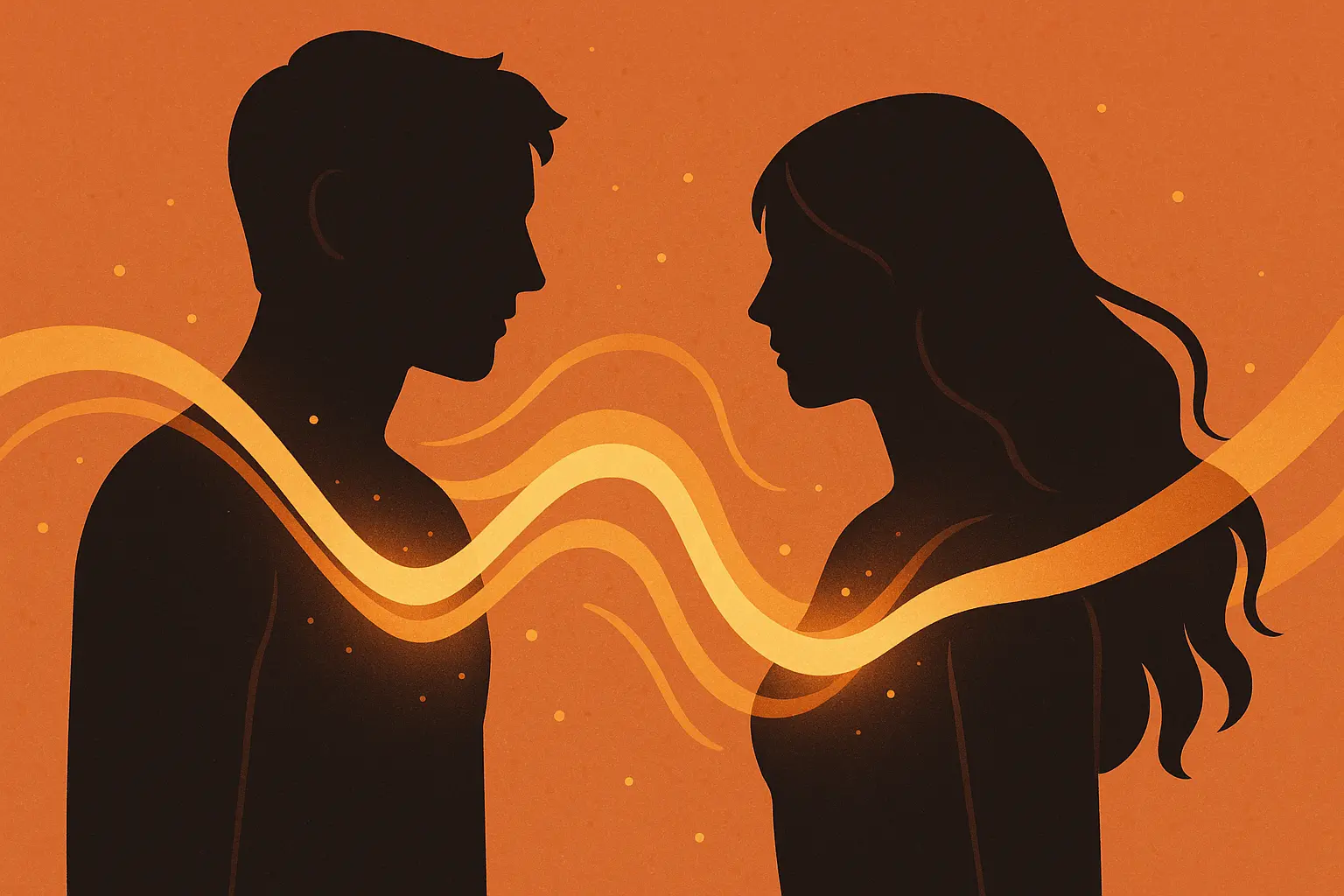
These aren’t your typical “will they or won’t they” romance stories. Each one digs into different aspects of human connection – from learning to communicate authentically to balancing personal happiness with responsibility to others.
6. Weathering With You (Tenki no Ko) – When Love Meets Responsibility
A runaway teenager meets a girl who can control weather, but using her power comes at a terrible cost. It’s about young love, sure, but also about making impossible choices between personal happiness and what’s supposedly “right” for everyone else.
You learn about balancing what you want with what others need. The story shows how young people can take meaningful action on big issues while navigating first love. It asks hard questions about who gets to decide what’s best for society.
This one hit me hard because it doesn’t give easy answers. Sometimes doing the “right thing” means sacrificing your own happiness, and sometimes choosing your own happiness is the more human choice. Life’s messy like that.
7. Toradora! – Looking Past First Impressions
Two misunderstood high school students help each other pursue their crushes and end up falling for each other instead. It’s about how the best relationships often start as friendships and grow into something deeper through genuine understanding, similar to the relationship dynamics explored in 25 epic love stories across different mediums.
This story shows how real relationships are built on actually knowing someone. You learn to look beyond surface appearances and social assumptions. The communication between these characters feels authentic – they fight, misunderstand each other, and have to work to make things work.
It’s one of those shows that reminds you that the person you’re meant to be with might not be who you think you want, but who actually understands and accepts you.
8. Violet Evergarden – Learning to Feel Again
A former child soldier learns about emotions by writing letters for other people. It sounds weird, but it’s really about developing emotional intelligence and healing from trauma through connecting with others.
You gain insights into processing difficult experiences and learning to express emotions. The show demonstrates how helping others can be part of your own healing process, and how emotional growth happens gradually through practice and patience.
Watching Violet slowly learn to understand and express feelings made me realize how much I’d been avoiding my own emotional development. Sometimes you need to see someone start from zero to appreciate how much work goes into being emotionally healthy.
9. Horimiya – Being Your Whole Self
Two students discover each other’s hidden sides and fall in love with the complete person, not just the public version. It’s about authenticity in relationships and how real intimacy happens when people feel safe being their entire selves.
This story demonstrates why authenticity matters in relationships. You learn about accepting others’ complexity and maintaining genuine connections while dealing with social expectations. The characters feel like real teenagers dealing with real insecurities.
The relationship development feels natural because both characters are allowed to be multifaceted people rather than romantic ideals. They’re weird, flawed, and human, which makes their connection feel achievable rather than fantasy.
Fantasy Adventures That Hit Deep
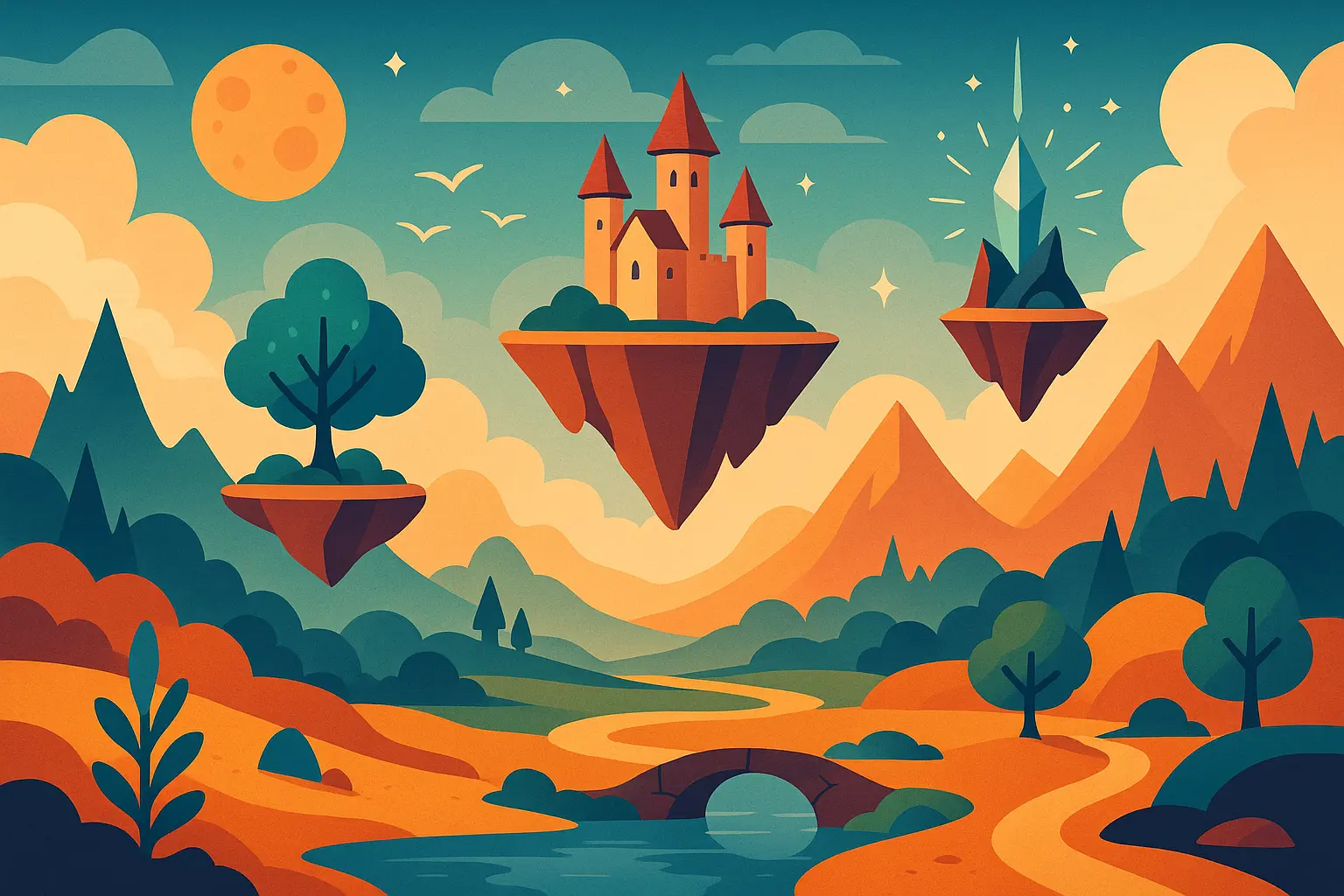
Yes, some of these shows have giant naked titans and magical notebooks that kill people. I get it – it sounds ridiculous. But stick with me here, because underneath the wild premises are some of the most honest portrayals of human struggle you’ll find anywhere.
10. Attack on Titan (Shingeki no Kyojin) – Questioning Everything You’re Told
Humanity fights giant monsters while uncovering dark truths about their history. What starts as a simple survival story becomes a complex examination of propaganda, historical trauma, and the cycle of violence.
You learn to question authority figures and examine official narratives critically. The story shows how propaganda shapes perception and why it’s essential to seek multiple perspectives. It demonstrates that conflicts rarely have clear heroes and villains – just people making choices based on incomplete information.
This show messed me up in the best way. It made me question assumptions I had about historical events and current conflicts. Sometimes the people you’re told are monsters have their own valid reasons for their actions.
11. Fullmetal Alchemist: Brotherhood – Consequences Are Real
Two brothers use forbidden alchemy to try to bring their mother back to life, and everything goes horribly wrong. It’s about accepting consequences for your actions and understanding that meaningful achievements require proportional effort and sacrifice.
This story teaches about taking responsibility for your choices. You learn that shortcuts often create bigger problems and that some mistakes can’t be undone – only lived with and learned from. The sibling relationship is incredibly realistic and touching.
The “equivalent exchange” concept – that you can’t get something for nothing – became a guiding principle in my life after watching this. It helped me understand why quick fixes rarely work and why sustainable change takes time and effort.
12. Spirited Away (Sen to Chihiro no Kamikakushi) – Adapting and Working Hard
A young girl must work in a spirit world to save her parents. It’s about developing a strong work ethic, adapting to unfamiliar environments, and treating everyone with respect regardless of their appearance or status.
You learn about resilience in new situations and the importance of environmental protection. The story shows how facing challenges with determination leads to personal growth, and how respect for others opens doors to unexpected help.
This movie taught me that adaptation isn’t about changing who you are – it’s about being flexible enough to handle new situations while staying true to your core values. Chihiro never stops being herself, even in the strangest circumstances.
13. Princess Mononoke (Mononoke-hime) – Finding Balance
A young prince mediates between industrial humans and forest spirits in a conflict about progress versus nature preservation. It’s about understanding multiple perspectives and finding solutions that consider everyone’s needs.
This story provides insights into environmental issues and compromise. You learn to see complex problems from different angles and understand that sustainable solutions require input from all stakeholders, not just the loudest voices.
The movie doesn’t present simple answers about environmental protection. Instead, it shows how difficult it is to balance human needs with nature conservation, and how real solutions require understanding and compromise from everyone involved.
14. One Piece – Friendship and Fighting Injustice
A young pirate searches for treasure while building friendships and fighting systemic oppression. It’s about leadership, loyalty, and pursuing dreams despite obstacles , showcasing must-read adventure stories that inspire readers worldwide.
You learn about building loyal teams and effective leadership. The story shows how to maintain friendships through challenges and fight against unfair systems while pursuing personal goals. True leadership means protecting and empowering others.
I’m a grown adult who learned about team management from a show about rubber pirates, and honestly, it works. The crew dynamics in One Piece taught me more about loyalty and leadership than most business books.
Everyday Life Stories That Matter
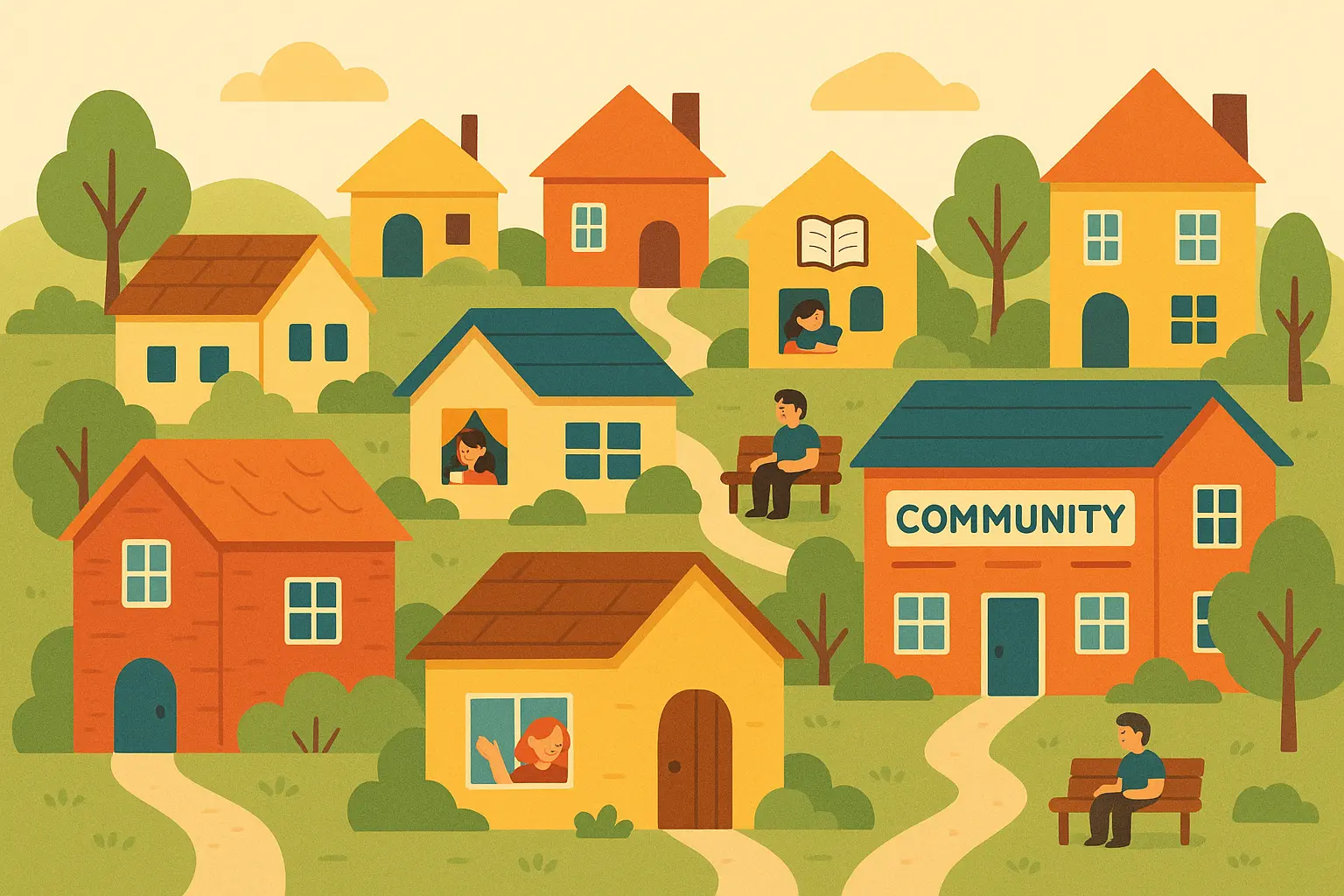
These stories focus on ordinary human experiences – family, community, loss, and resilience. They prove that you don’t need superpowers or epic quests to tell meaningful stories about the human experience.
15. Clannad: After Story – Life Transitions Hit Hard
Following a young man from high school romance through marriage and parenthood, this story doesn’t sugarcoat how difficult major life transitions can be. It deals with parenting challenges, dealing with loss, and the importance of community support.
You gain insights into navigating major life changes and parenting responsibilities. The story shows how community support systems provide stability during difficult transitions, and how life’s most meaningful moments often come through relationships with others.
This show destroyed me emotionally, but in a way that felt healing. It showed me that grief and joy often exist simultaneously, and that’s just part of being human.
16. Grave of the Fireflies (Hotaru no Haka) – War’s Real Cost
Two siblings struggle to survive in Japan during World War II. It’s a devastating examination of how war affects civilian populations, especially children, and the lengths people go to protect family.
This story teaches about the human cost of conflict and family responsibility. You learn about finding strength in impossible circumstances and gain perspective on current global conflicts and refugee experiences.
Fair warning: this movie will wreck you emotionally. But it’s important because it shows war from the perspective of innocent people just trying to survive, which is a perspective we don’t see enough.
17. Tokyo Godfathers – Found Family Is Real Family
Three homeless people find an abandoned baby on Christmas Eve and search for its parents. It’s about homelessness, found family, and how redemption comes through caring for others who need help.
You learn about understanding homelessness issues and recognizing that family can be chosen. The story shows how people experiencing hardship still have capacity for love, sacrifice, and heroism. It demonstrates that redemption comes through service to others.
My neighbor Sarah, who works at a homeless shelter, told me this movie completely changed how she approached her job. Instead of just focusing on getting people housed, she started really listening to their stories and connecting them with their chosen family networks. It made her more effective because she started seeing people as complete humans with complex relationships, not just cases to manage.
18. A Place Further Than the Universe (Sora yori mo Tooi Basho) – Impossible Dreams Aren’t Always Impossible
Four high school girls journey to Antarctica to fulfill a dream and find closure. It’s about pursuing ambitious goals that everyone tells you are unrealistic and how shared adventures create unbreakable bonds.
This story teaches about chasing big dreams and building supportive friendships. You learn about processing grief through meaningful action and understand that age doesn’t limit what you can accomplish. The friendships feel genuine and earned.
Sometimes the most healing thing you can do is pursue something that seems impossible. The journey matters more than whether you actually achieve the goal.
Psychological Stories That Mess With Your Head
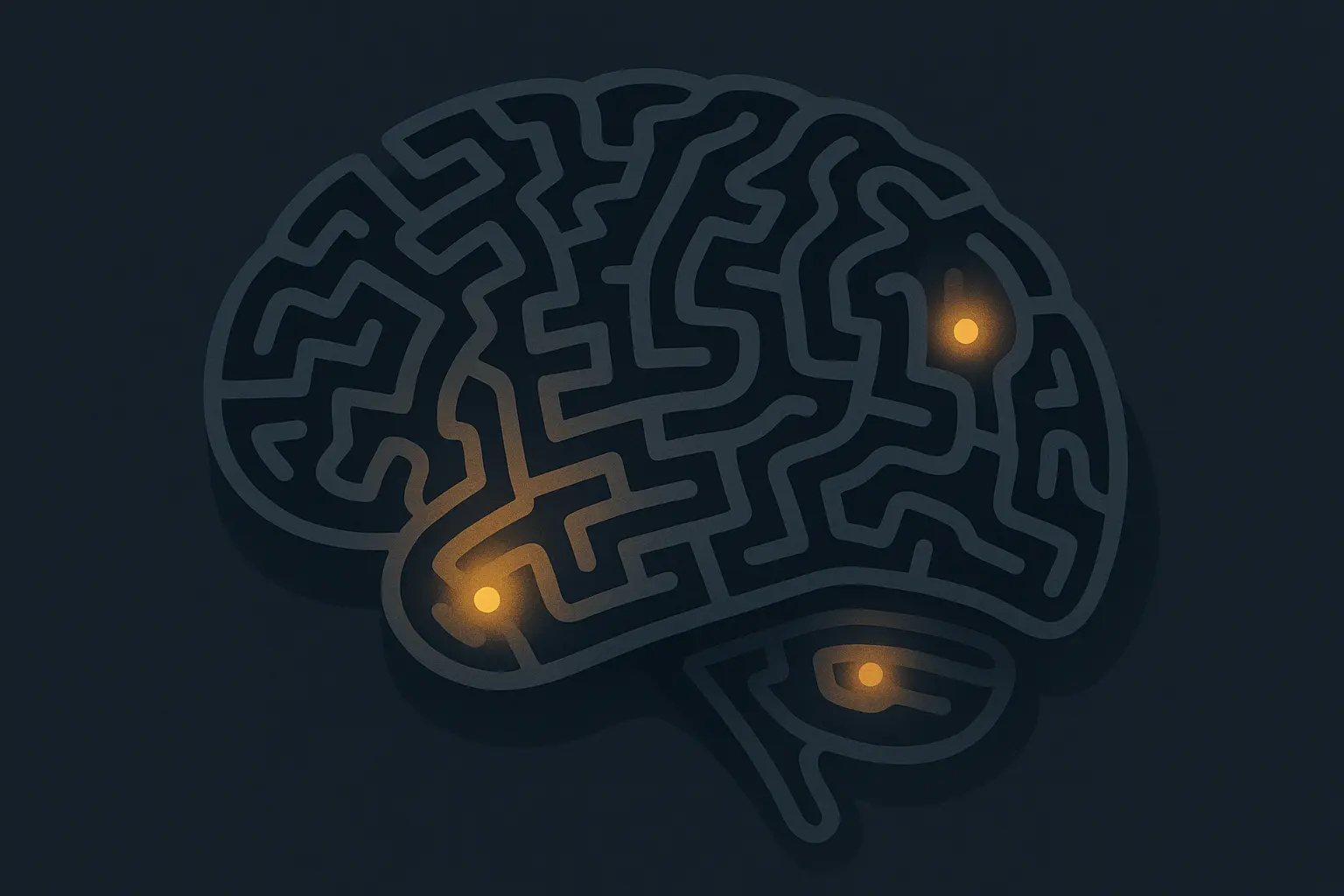
These stories dig into the darker aspects of human psychology and moral complexity. They’re not always comfortable to watch, but they’ll make you think about your own moral beliefs and assumptions about society.
19. Monster – The Nature of Evil
A Japanese surgeon pursues a former patient who became a serial killer, questioning whether evil is born or made. It explores medical ethics and the consequences of our decisions on others.
You examine what creates evil behavior and consider moral responsibility. The story helps you understand the complexity of human nature and provides insights into ethical decision-making. It shows how good intentions without careful consideration can lead to terrible outcomes.
This show made me question everything I thought I knew about good and evil. The characters are so complex that you find yourself sympathizing with people you should probably hate, which is deeply uncomfortable but necessary.
20. Death Note – Power Corrupts Everyone
A high school student gains the power to kill anyone by writing their name in a supernatural notebook. It explores how power corrupts and the difference between justice and vengeance.
This story teaches about how power changes people and why taking justice into your own hands is dangerous. You learn about the importance of legal systems and due process. It demonstrates how even well-intentioned people can become monsters with unchecked power.
Watching Light’s transformation from idealistic student to megalomaniac was terrifying because it felt believable. It made me more aware of my own potential for rationalization and moral compromise.
21. Psycho-Pass – Technology and Free Will
In a future society, a system predicts criminal behavior, but officers begin questioning its infallibility. It explores privacy versus security, technology in law enforcement, and questions about free will versus determinism.
You gain insights into digital surveillance concerns and the role of technology in society. The story raises philosophical questions about predetermined behavior and the dangers of relying too heavily on algorithmic decision-making.
This show feels more relevant every year as we become more dependent on algorithms to make decisions about our lives. It’s a cautionary tale about what happens when we stop questioning the systems we create.
22. Perfect Blue – Identity Crisis and Social Media
A pop idol turned actress is stalked by an obsessive fan while her grip on reality deteriorates. It examines celebrity culture, identity crisis, and social media’s impact on mental health.
This story provides insights into celebrity culture dangers and identity crisis. You learn to recognize social media’s negative impacts on mental health and self-perception. It shows how public personas can become prisons.
This movie predicted social media culture in scary ways. It made me more conscious of how online personas can become disconnected from who we actually are.
|
Psychological Theme |
Shows That Explore It |
What You Learn |
|---|---|---|
|
Power Corruption |
Death Note, Psycho-Pass |
Absolute power corrupts; checks and balances are essential |
|
Identity Crisis |
Perfect Blue, Ghost in the Shell |
Authentic self vs. public image management |
|
Moral Ambiguity |
Monster, Attack on Titan |
Complex situations require nuanced thinking |
|
Surveillance Society |
Psycho-Pass |
Balance between security and personal freedom |
Science Fiction That Feels Real
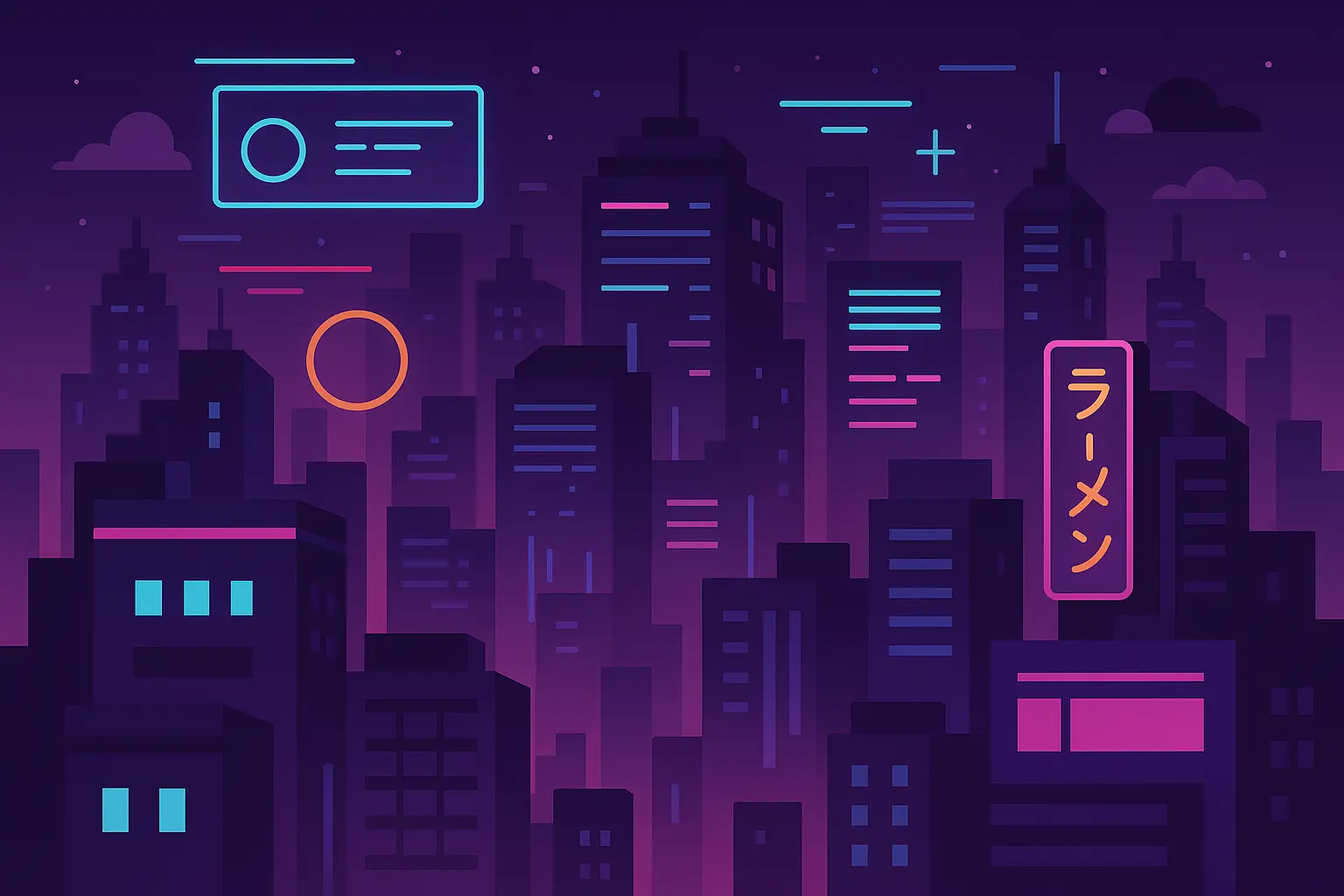
These stories explore futuristic scenarios that reflect current technological and social concerns. They’re not just cool sci-fi concepts – they’re examinations of how advancing technology might impact human society and individual identity.
23. Ghost in the Shell: Stand Alone Complex – What Makes Us Human?
A cyborg policewoman investigates crimes in a future where the line between human and machine blurs. It explores AI ethics, digital identity, and human enhancement technology.
You examine AI ethics and consider questions about digital identity. The story helps you understand potential implications of human enhancement technologies and raises important questions about what makes us fundamentally human.
This show made me think differently about consciousness and identity. In a world where we’re increasingly connected to technology, what parts of ourselves remain essentially human?
24. Akira – Friendship During Crisis
In post-apocalyptic Neo-Tokyo, a biker gang member gains psychic powers that threaten the city. It’s about maintaining friendships during crisis, government experimentation ethics, and how social inequality leads to larger problems.
This story teaches about loyalty during extreme circumstances and government ethics. You learn to recognize how urban decay and social inequality create conditions for larger societal problems.
The friendship between Kaneda and Tetsuo feels real even in the midst of psychic powers and government conspiracies. It shows how loyalty can survive even when people change in fundamental ways.
25. Steins;Gate – Scientific Responsibility
A self-proclaimed scientist accidentally discovers time travel through a microwave, leading to dangerous consequences. It explores scientific responsibility, the butterfly effect, and sacrifice for others’ happiness.
You learn about scientific responsibility and how small actions can have large consequences. The story shows when personal sacrifice is necessary for the greater good and demonstrates that knowledge comes with responsibility.
This show taught me that some discoveries require careful consideration before implementation. Just because you can do something doesn’t mean you should.
How These Stories Apply to Real Life
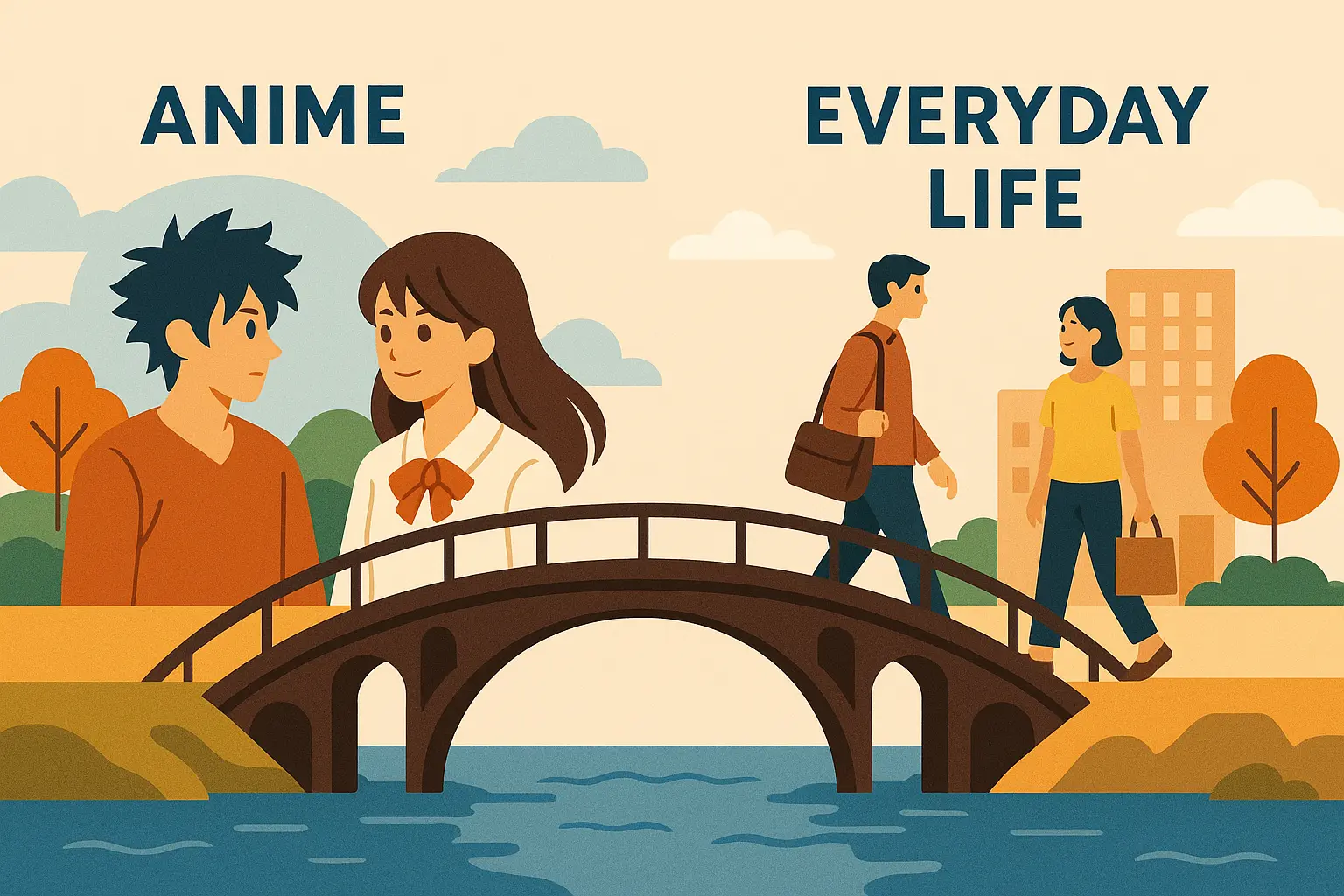
Here’s where it gets practical. These stories aren’t just entertainment – they’re tools for navigating real-world situations. I’ve seen people apply lessons from these shows to everything from job interviews to relationship problems.
Professional development insights come from multiple stories. “My Hero Academia” teaches leadership skills and helps with imposter syndrome by showing how persistence and mentorship lead to growth. “March Comes in Like a Lion” demonstrates finding purpose in work, while “Monster” explores professional ethics.
The key is that professional success in these stories always involves emotional intelligence and ethical decision-making, not just technical skills.
Personal relationship guidance flows naturally from these narratives. “Violet Evergarden” shows how to support loved ones through crisis, while “Horimiya” demonstrates building authentic connections. “Your Name” illustrates healing through community and shared experiences.
These relationship dynamics emphasize honest communication, mutual respect, and accepting others’ complexity. They show that meaningful relationships require effort and willingness to grow together.
Moral decision-making frameworks become clearer through these stories. “Death Note” shows the dangers of vigilante justice, while “Steins;Gate” examines standing up for values under pressure. “Princess Mononoke” explores ethical problem-solving.
Dr. Jennifer Chen, an emergency room physician, told me she applied lessons from “Monster” during the COVID-19 pandemic. When faced with difficult triage decisions, she remembered how Dr. Tenma wrestled with medical choices. This helped her develop a structured ethical framework that balanced individual needs with collective welfare, leading to more consistent treatment decisions during the crisis.
Social issues understanding develops through these narratives. “Tokyo Godfathers” addresses economic inequality, while “Psycho-Pass” questions surveillance culture. “Grave of the Fireflies” deals with war’s impact on civilians.
These stories help you understand complex social problems from multiple perspectives, encouraging empathy and critical thinking about contemporary issues.
|
Life Area |
Relevant Shows |
Skills You Develop |
How to Apply It |
|---|---|---|---|
|
Leadership |
My Hero Academia, One Piece |
Mentorship, Team building, Perseverance |
Lead by example, Support team growth |
|
Relationships |
Horimiya, Toradora!, Violet Evergarden |
Communication, Empathy, Authenticity |
Active listening, Emotional intelligence |
|
Ethics |
Monster, Death Note, Princess Mononoke |
Moral reasoning, Consequence evaluation |
Structured decision frameworks |
|
Crisis Management |
Attack on Titan, Steins;Gate, Grave of the Fireflies |
Resilience, Adaptability, Sacrifice |
Emergency planning, Community support |
|
Professional Growth |
March Comes in Like a Lion, Ghost in the Shell |
Work-life balance, Ethical boundaries |
Career development, Professional networking |
Creating Your Own Stories
The storytelling techniques in these anime can inspire your own creative writing. Understanding how they combine universal human experiences with unique creative perspectives provides a foundation for crafting stories that resonate with people.
These stories succeed because they balance character development with plot progression. They integrate real-world themes with engaging premises and create emotionally resonant moments that stick with audiences. Whether you’re inspired by the supernatural romance of “Your Name” or the moral complexity of “Monster,” these narratives demonstrate essential storytelling principles.
The best anime stories combine visual storytelling with deep thematic content. They use compelling openings, develop characters through meaningful challenges, and resolve conflicts in satisfying ways, much like the 25 short story examples that will transform your understanding of great fiction techniques.
When crafting your own narratives, consider how these stories handle universal themes through unique premises. “Attack on Titan” takes survival and layers in political commentary. “Horimiya” uses high school romance to explore authenticity.
Your stories can follow similar patterns – start with relatable human experiences, add unique creative elements, and ensure every plot point serves both character development and thematic exploration. The most memorable stories help readers understand themselves and their world better, incorporating 25 first person story examples that will transform your writing forever techniques that connect with audiences.
If these stories inspire you to write your own, go for it. The world needs more stories that help people feel less alone in their struggles and discoveries.
Final Thoughts
These 25 anime stories represent more than entertainment – they’re windows into the human experience that offer practical wisdom for navigating life’s challenges. From the coming-of-age struggles in “A Silent Voice” to the complex moral questions in “Monster,” each narrative demonstrates how compelling storytelling can provide both escapism and genuine insight.
The global anime market’s growth to $26.13 billion in 2022, with projections reaching $50.22 billion by 2030, reflects more than commercial success – it shows cultural impact. When 36% of viewers worldwide find anime more emotionally engaging than other media forms, we’re witnessing the power of stories that combine universal themes with unique creative perspectives.
Look, not every anime on this list is going to hit you the same way. “Grave of the Fireflies” destroyed me emotionally for weeks, but my sister thought it was too depressing to finish. That’s okay – we all need different stories at different times in our lives.
I started this thinking I’d convince people that anime is “serious art” or whatever. But honestly? These stories matter because they make you feel less weird about being human. Whether you’re ugly-crying over animated characters or learning life lessons from superpowered teenagers, you’re just looking for the same thing we all are – stories that make sense of this messy, beautiful, confusing experience we’re all stumbling through together.
Here’s the thing – these stories won’t magically fix your life. I still mess up relationships, make bad decisions, and eat ice cream for breakfast sometimes. But now when I’m struggling, I have these characters in my head reminding me that everyone’s figuring it out as they go. And honestly? That’s pretty comforting.
Whether you’re seeking personal growth through “March Comes in Like a Lion,” relationship guidance from “Horimiya,” or moral frameworks from “Death Note,” these stories prove that the best narratives transcend their medium to become tools for understanding ourselves and others. They remind us that compelling storytelling has the power to transform perspectives, inspire action, and create lasting emotional connections that enrich our lives long after the final credits roll.

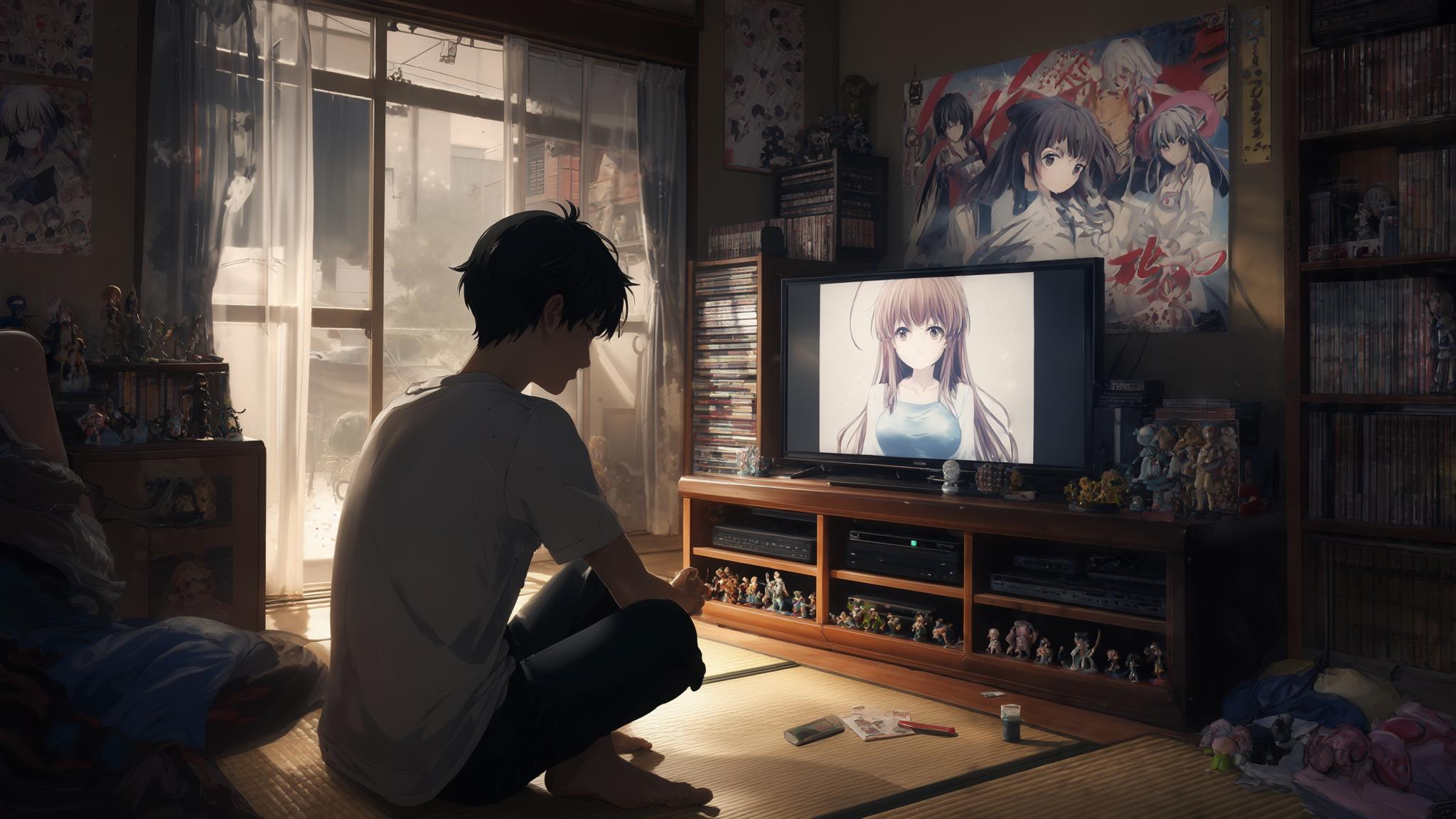
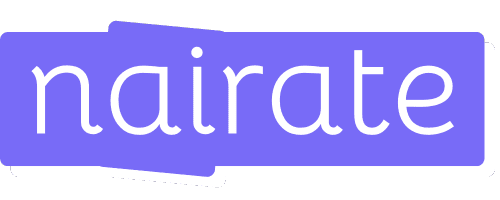
Add comment